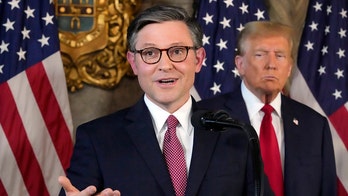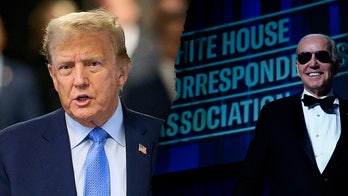Former Obama official Joel Rubin weighs in on Vice President Kamala Harris' potential Middle East policy, including her stance on the Iran nuclear deal and the possibility of a new agreement.
Vice President Kamala Harris' potential Middle East policy has drawn attention from both supporters and critics, with many speculating about her approach to the region if she were to become president. A former Obama administration official has provided insights into Harris' possible policies, particularly regarding Iran.
Joel Rubin, a Democratic strategist and former deputy assistant secretary of state for legislative affairs to the House, believes that Harris would seek a new Iran nuclear deal if she were elected president. Rubin, who helped negotiate the original Iran nuclear deal, argues that while the old agreement cannot be simply restarted, a firm and verifiable nuclear deal is crucial to prevent Iran from developing nuclear weapons.

Kamala Harris' Potential Middle East Policy: A Deeper Look
Harris has previously expressed support for the Iran nuclear deal, stating during her 2020 presidential campaign that she would rejoin the agreement if elected. However, it remains unclear whether she maintains this stance in her 2024 campaign platform.
Rubin's comments come amidst tensions between the United States and Iran over the issue of nuclear weapons. Iran has been accused of violating the terms of the original nuclear deal, and the Biden administration has stated that rejoining the agreement is not currently on the table.

Kamala Harris' Potential Middle East Policy: A Deeper Look
Despite this, Iran's supreme leader, Ayatollah Ali Khamenei, has suggested that Tehran could be open to new talks on a nuclear agreement. Rubin believes that it is imperative to curb Iran's nuclear ambitions, as a nuclear-armed Iran would pose a threat to the region and the world.
Harris' potential stance on the Iran nuclear deal has drawn criticism from some Republicans, who argue that it would embolden Iran and weaken the United States' position in the Middle East. However, Rubin maintains that a new nuclear deal that is firm and verifiable would be the most effective way to address Iran's nuclear threat.

Kamala Harris' Potential Middle East Policy: A Deeper Look
It is important to note that Rubin's comments solely represent his own opinions and not necessarily those of Vice President Harris or her campaign. The full extent of Harris' Middle East policy remains to be seen, and her official stance on various issues will likely emerge as her campaign platform develops.
Other potential aspects of Harris' Middle East policy include her approach to the Israeli-Palestinian conflict, the US relationship with Saudi Arabia, and the ongoing war in Yemen. It remains to be seen how Harris would address these complex issues if she were to become president.

Kamala Harris' Potential Middle East Policy: A Deeper Look
In the meantime, Rubin's insights provide a glimpse into the potential direction of Harris' Middle East policy, particularly regarding Iran and nuclear weapons. As her campaign progresses, Harris will likely further clarify her positions on these critical issues, shaping the future of US policy in the Middle East.










